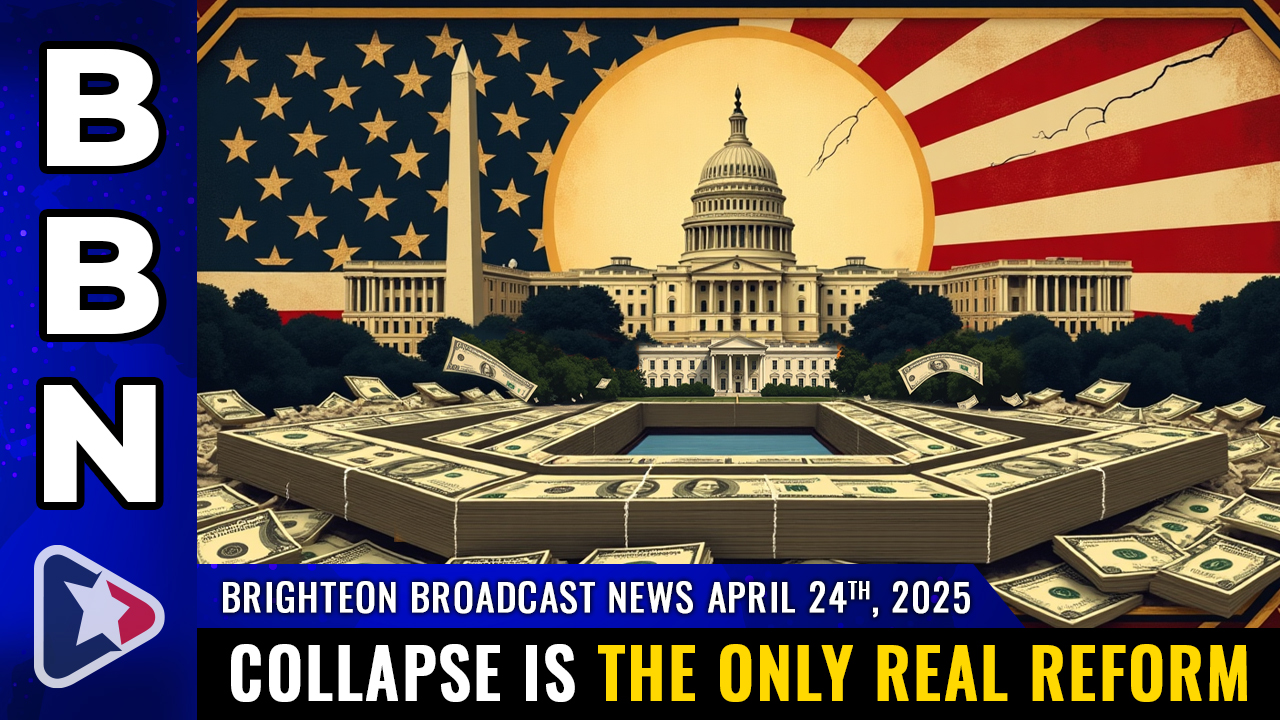WEF's Klaus Schwab and his wife Hilde under investigation for ethical and financial MISCONDUCT
By ramontomeydw // 2025-04-25
Tweet
Share
Copy

- World Economic Forum (WEF) founder Klaus Schwab and his wife Hilde are under investigation for alleged financial and ethical misconduct, including misuse of WEF funds for personal luxuries and cash withdrawals by junior staff.
- A whistleblower letter accused the Schwabs of blurring personal and organizational finances, such as billing luxury trips and private massages to the nonprofit. Klaus denies the claims, stating personal expenses were reimbursed.
- Following an emergency board meeting the day before, Klaus retired as WEF chairman "with immediate effect" on April 21, ending his 50+ year leadership amid escalating scrutiny.
- The scandal follows prior workplace culture allegations, including discrimination claims. Interim leadership falls to Peter Brabeck-Letmathe, a controversial ex-Nestle CEO.
- Schwab's departure marks the end of an era, but critics argue the WEF's technocratic agenda (e.g., the "Great Reset") will persist, maintaining its influence over global governance.
Schwab steps down, but will anything change?
The WEF's board, which includes figures like BlackRock CEO Larry Fink and former U.S. Vice President Al Gore, held an emergency meeting Sunday, April 20. They voted unanimously to open an independent probe, with Klaus stepping down the following day. His departure marks the end of an era for the WEF, which he founded in 1971 as the European Management Forum before rebranding it into a platform for global elites to shape economic and political agendas. The controversy follows another recent investigation into the WEF's workplace culture, prompted by an earlier WSJ report alleging discrimination against women and Black employees. While the WEF disputed those claims at the time, the new whistleblower allegations accelerated Schwab's exit. Interim leadership now falls to Peter Brabeck-Letmathe, former Nestle CEO and a controversial figure known for advocating water privatization and genetically modified foods. (Related: Klaus Schwab STEPS DOWN as World Economic Forum executive chairman.) Schwab's legacy is deeply intertwined with the WEF's evolution into a hub for global governance, where business leaders, politicians and activists converge annually in Davos. Critics have long accused the organization of promoting technocratic elitism, particularly after Schwab's "Great Reset" initiative, which called for restructuring economies post-pandemic through digital and biological integration. His 2022 warning of future global crises reinforced perceptions of the WEF as a self-appointed architect of humanity's future. Despite Schwab's departure, analysts doubt the WEF's direction will change. "Schwab is a megalomaniac, but his resignation won't alter the WEF's mission," said Michael Rectenwald, author of a critical book on the organization. Others, like journalist Tim Hinchliffe of The Sociable, warn that the WEF will continue pushing a technocratic agenda merging corporations, governments and digital identities. As the investigation unfolds, the WEF faces scrutiny over its governance and the conduct of its leadership. For now, Schwab's sudden exit closes a contentious chapter, but the questions surrounding his tenure – and the organization's influence – remain unresolved. Visit Globalism.news for more similar stories. Watch Ted Provenza commenting on Klaus Schwab's retirement from the WEF and whether it signals the return of liberty. This video is from the TEDSpeaksNEWS channel on Brighteon.com.More related stories:
World Economic Forum's new leader sharpens globalist critics' fears as Schwab steps down amid scandal. Whistleblower calls for WEF founder Klaus Schwab to be ARRESTED over "crimes against humanity". Critics blast Klaus Schwab, WEF for trying to "master the future" with global enslavement agenda. Sources include: ChildrensHealthDefense.org WSJ.com APNews.com Brighteon.comTweet
Share
Copy
Tagged Under:
corruption whistleblower conspiracy globalism deception lies world economic forum Klaus Schwab globalist elites real investigations outrage depot great reset Davos Peter Brabeck-Letmathe Hilde Schwab financial misconduct ethical misconduct
You Might Also Like
FBI affidavit: Teen’s plot to assassinate Trump linked to Ukrainian operation
By Ramon Tomey // Share
FDA cracks down on Big Pharma influence, but conflicts remain
By Ava Grace // Share
Big Ag exploits RFK Jr.’s organic advocacy to push unregulated GMO “biologicals”
By Willow Tohi // Share
By Finn Heartley // Share
By Lance D Johnson // Share
Recent News










